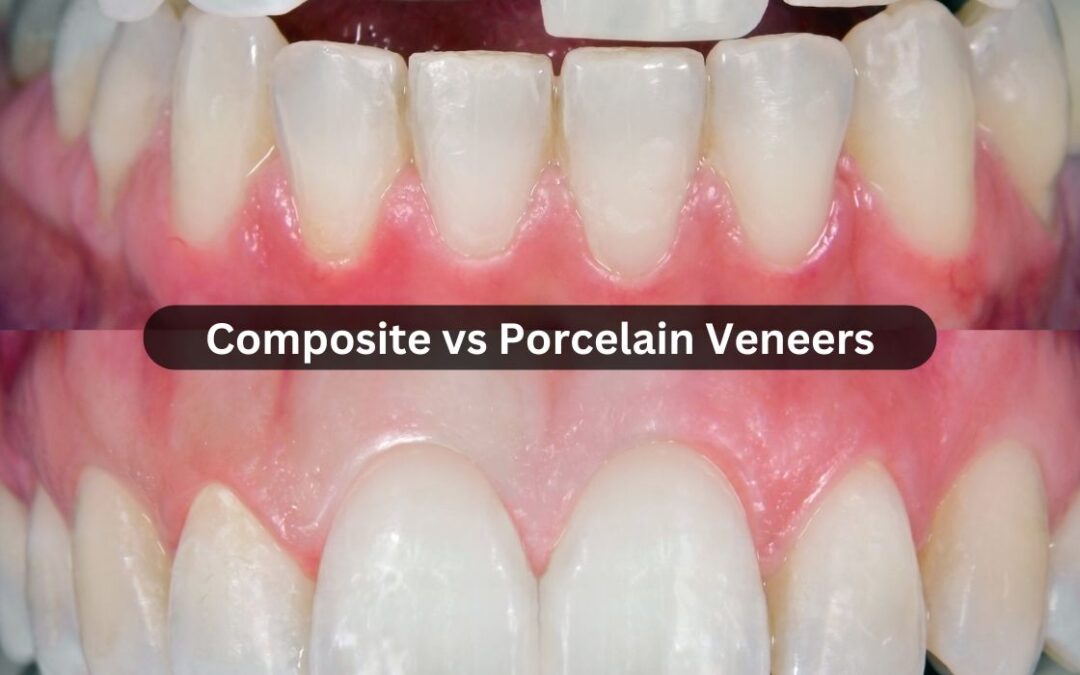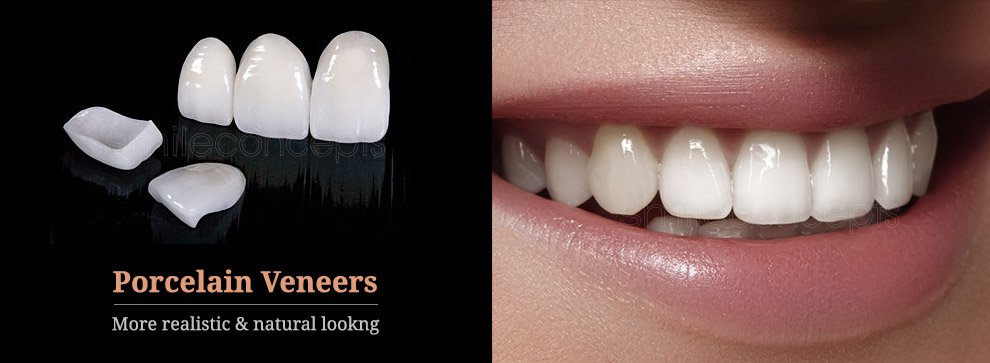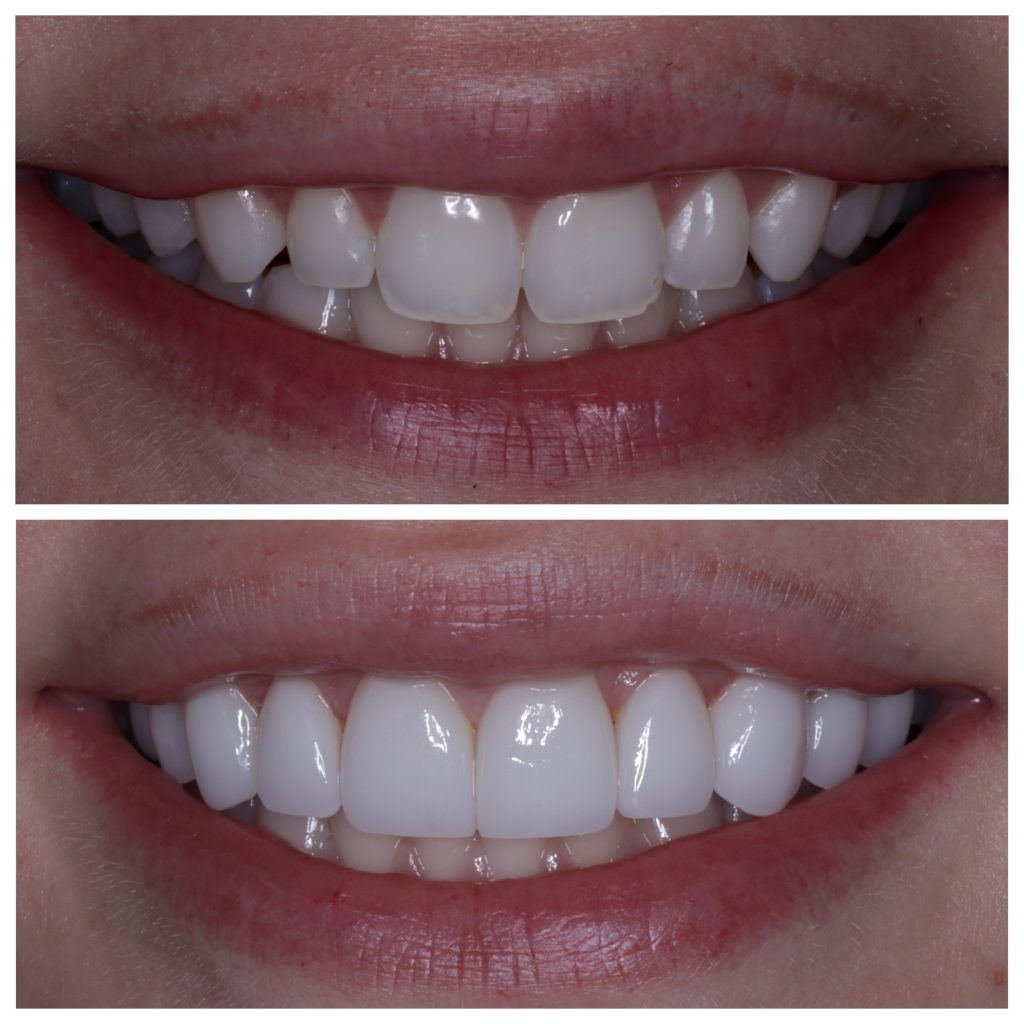Unlocking the Secrets of Veneers: Facts, Kinds, and Benefits for a Gorgeous Smile
Veneers offer a compelling option for those seeking to boost their smiles. These oral enhancements can deal with different imperfections, from staining to misalignment. With choices like porcelain and composite, people can choose based upon their preferences and requirements. However, comprehending the subtleties of veneers, including application and care, is necessary. What factors should one take into consideration prior to making a choice? The responses might stun those interested in this aesthetic dental alternative.

Comprehending Veneers: What Are They?
Veneers are thin, custom-made shells developed to cover the front surface area of teeth, boosting their appearance. Generally crafted from durable materials, these shells are customized to fit each individual's teeth exactly. They serve several objectives, including fixing visual imperfections such as discoloration, chips, or voids. The application procedure entails a dental practitioner preparing the teeth, usually by getting rid of a percentage of enamel to guarantee a snug fit. When prepared, the veneers are bonded to the teeth utilizing a strong adhesive.
Individuals usually select veneers for their capacity to produce a natural-looking smile while offering a resilient service to dental flaws. Unlike various other aesthetic dentistry alternatives, veneers need marginal invasive procedures, making them a preferred choice. The outcome is a better smile that can significantly enhance a person's self-confidence and self-confidence. On the whole, veneers provide an effective approach to attaining a much more harmonious and eye-catching oral appearance.
Sorts of Veneers: Porcelain vs. Composite
When taking into consideration cosmetic oral options, two key kinds of veneers stick out: porcelain and compound. Porcelain veneers are crafted from a sturdy ceramic product that imitates the all-natural look of teeth. They are known for their stain resistance and capability to reflect light in a similar way to all-natural enamel, giving an aesthetic allure that lots of people desire. The application process typically entails more prep work of the tooth framework and may call for numerous visits to the dental expert.
On the various other hand, composite veneers are made from a tooth-colored material that is straight related to the teeth. This type enables for quicker application and can commonly be finished in a single browse through. While they are cheaper than porcelain veneers, they may not use the same long life or resistance to discoloration. Inevitably, the selection in between porcelain and composite veneers depends upon specific preferences, spending plan, and certain oral demands.
The Benefits of Choosing Veneers
Selecting veneers supplies various advantages that can significantly improve both the aesthetics and functionality of a person's smile. Among the primary advantages is their ability to correct blemishes such as staining, gaps, and imbalance, resulting in an extra uniform look. Veneers can likewise boost the resilience of teeth, providing a protective layer that guards them from damages.
Moreover, they need marginal tooth prep work contrasted to various other dental procedures, protecting even more of the all-natural tooth framework. This preservation contributes to a healthier oral environment while still attaining a sensational smile.
Veneers are extremely adjustable, enabling individuals to choose the shape, size, and shade that ideal fits their preferences. In addition, they are stain-resistant, making it simpler to preserve a eye-catching and brilliant smile gradually. Generally, veneers provide an efficient alternative for those looking for both aesthetic improvement and lasting oral health and wellness advantages.
The Veneer Application Refine
The veneer application process includes several key actions to ensure optimal outcomes. An examination is carried out to evaluate the patient's needs, adhered to by the preparation and shaping of the teeth. Finally, the veneers are bound in location, with modifications made for an ideal fit and look.
Initial Examination Steps
A complete preliminary consultation is necessary for anyone considering veneers, as it sets the structure for an effective therapy. Throughout this conference, the oral specialist examines the individual's dental health and wellness, reviewing any existing issues that could affect the veneer application. This analysis may include X-rays and an aesthetic examination to establish the problem of the teeth and gum tissues.
The dental practitioner also involves the client in a comprehensive discussion concerning their aesthetic goals, preferences, and expectations. They might provide different veneer alternatives customized to the individual's particular requirements. Furthermore, the expert describes the treatment, prospective dangers, and aftercare demands, making certain that the person is knowledgeable and comfy prior to continuing with the therapy.
Preparation and Forming Teeth
After the initial assessment, the next phase includes the preparation and shaping of the teeth to accommodate the veneers. This crucial action is executed by the dental expert, that carefully examines the tooth framework to identify the amount of enamel that needs to be gotten rid of. Usually, a thin layer, generally around 0.5 millimeters, is cut off to ensure an appropriate fit for the veneers. Accuracy is paramount during this process, as it influences both the aesthetic result and the general comfort. Once the teeth are properly formed, impressions are taken to develop customized veneers that line up completely with the individual's dental account. This careful prep work sets the phase for an effective veneer application, boosting both look and feature.
Bonding and Last Changes
Complying with the shaping and prep work of the teeth, the bonding process begins, marking a crucial phase in the veneer application. During this phase, a dental adhesive is related to the ready tooth surface area, ensuring a solid bond in between the tooth and the veneer. The dental practitioner carefully positions the veneer, making adjustments to achieve the desired placement and appearances. Once properly positioned, an unique light is made use of to heal the sticky, strengthening the bond. After healing, the dentist conducts final changes, cutting any kind of excess product and improving the veneer's form to ensure a natural appearance. This careful focus to information enhances both function and aesthetic appeals, adding to an overall stunning smile that is resilient and sturdy.
Caring for Your Veneers: Maintenance Tips
Caring for veneers is essential to maintain their appearance and durability. A constant day-to-day cleansing regimen, mindful avoidance of staining foods, and regular dental examinations are key elements of efficient upkeep. These methods aid guarantee that veneers continue to be in peak problem and remain to enhance one's smile.
Daily Cleaning Routine
Regularly keeping veneers is important for their long life and look. An appropriate day-to-day cleaning regimen can aid Related Site preserve their sparkle and protect against damages. Dental experts advise cleaning twice a day with a soft-bristled toothbrush and fluoride toothpaste, making certain that all surfaces are cleansed carefully to avoid damaging the veneer surface. Flossing daily is additionally crucial to eliminate food particles and plaque from between teeth, where brushes might not get to. Furthermore, using an Porcelain Veneers Dentist antimicrobial mouth wash can aid keep oral hygiene without harming the veneers. It is a good idea to stay clear of unpleasant cleansers and devices that can scrape the veneer. By following these simple steps, people can keep their veneers looking beautiful while promoting overall dental health and wellness.
Avoiding Staining Foods
Although veneers are created to improve the look of teeth, their sensitivity to staining demands mindful dietary choices. It is vital for people with veneers to be conscious of particular foods and beverages that can cause staining. Dark-colored products such as coffee, merlot, and berry juices must be eaten in moderation, as they are understood to discolor both all-natural teeth and veneers. Additionally, acidic foods like citrus fruits can weaken the bonding representatives utilized in veneers, making them much more vulnerable to discoloration. To keep a brilliant smile, it is advisable to rinse the mouth with water after taking in staining foods and to exercise regular oral health. These thoughtful choices add significantly to the longevity and looks of veneers.

Regular Oral Exams

Maintaining the integrity of veneers requires a dedication to normal dental examinations, as these appointments play a vital role in ensuring their long life and look. During these brows through, dental professionals can evaluate the condition of the veneers, looking for any kind of signs of wear, damage, or underlying dental concerns. Furthermore, regular cleansings help remove plaque and tartar that can gather around the veneers, promoting total dental wellness. Dental experts can additionally supply tailored guidance on care methods and items matched for veneer upkeep. By sticking to a schedule of examinations, people can address possible troubles early, ensuring their smile remains beautiful have a peek at this site and vibrant. Ultimately, routine dental gos to are an essential element of veneer care.
Is Veneers the Right Choice for You?
Making a decision whether veneers are the right option usually rests on private visual objectives and dental requirements. For those seeking to address problems such as staining, chips, or imbalance, veneers can provide a transformative remedy. Candidates usually include individuals with healthy teeth but prefer a boosted smile.
It is important to take right into account aspects such as tooth enamel condition, the degree of dental concerns, and the willingness to preserve veneers. Consulting with a dental professional is essential, as they can review oral health and determine if veneers are appropriate
Furthermore, prospective prospects ought to assess the long-term commitment, as veneers may need replacement every 10-15 years. Expense factors to consider also play a substantial function, as veneers can be a considerable financial investment. Inevitably, the choice must be well-informed, stabilizing visual needs with sensible factors to consider for enduring results.
Frequently Asked Inquiries
For How Long Do Veneers Normally Last Prior To Needing Replacement?
Veneers commonly last between 10 to 15 years prior to requiring replacement. Variables such as oral health, lifestyle selections, and material top quality can influence their durability, making normal oral exams important for keeping their problem.
Are Veneers Safe for Individuals With Delicate Teeth?
Veneers can be safe for individuals with sensitive teeth, but it often depends upon the severity of level of sensitivity and the dentist's method. Consulting an oral professional prior to proceeding is important to assure ideal end results.
Can Veneers Be Removed or Changed Conveniently?

Do Veneers Discoloration Gradually, and How Can I Avoid It?
Veneers can discolor gradually, especially from foods and beverages like coffee or merlot. To protect against discoloration, maintaining great dental health, using a straw for beverages, and normal oral cleanings are suggested methods.
What Is the Cost Range for Getting Veneers?
The price of veneers normally varies from $500 to $2,500 per tooth, depending upon elements such as product kind, dentist experience, and place. Individuals must consult with dental experts for customized quotes and financing alternatives.
Once the teeth are appropriately formed, perceptions are taken to create custom veneers that align flawlessly with the individual's oral profile. Throughout this phase, an oral adhesive is applied to the ready tooth surface, guaranteeing a solid bond in between the veneer and the tooth. It is important to take right into account elements such as tooth enamel condition, the degree of oral problems, and the willingness to keep veneers. Veneers can be secure for people with delicate teeth, however it commonly depends on the intensity of level of sensitivity and the dental practitioner's technique. The cost of veneers typically ranges from $500 to $2,500 per tooth, depending on aspects such as product kind, dental expert experience, and place.